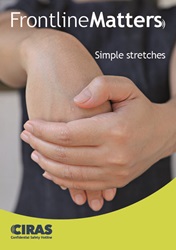If you see something that looks or feels unsafe, you have a choice. Do something – or do nothing. Doing nothing is as much a choice as doing something – and we are all responsible for the choices we make.
But you can make a difference. Sharing your concerns means that companies will be aware of any issues, so they can investigate and can act on them. You might be the only person who can see that there’s a problem, so it’s important not to assume that others know about it.
If you don’t want to raise your concerns through other channels, or if you’ve tried without success, we can pass them on confidentially to the right people.
When you’re ready to be heard, we’re here to listen.
Find out more in our videos below.
What do people report?
Exposure to fumes and poor air quality. Performing tasks without the right competence. Social distancing measures not followed. Training not suitable for the role. Regular trespass. Worn-out equipment. These are just a few examples of things people have raised with CIRAS – and you can see more in our Frontline Matters newsletter or on our case studies page.
We discuss your health, safety or wellbeing concern with you to make sure we can take it forward while protecting confidentiality. We pass your concern to the appropriate company, removing any identifying details, so that they can take action.
To close the loop, we share the company’s response with you. You can also ask further questions, which we pass to the company to address. CIRAS helps important conversations to happen confidentially.
Did you know?
- Top five safety themes raised with CIRAS in 2024/25 were rules and procedures, health and wellbeing, the person's environment, infrastructure, and equipment.
- You can raise a concern about another company, for example if you spot unsafe practices on a shared work site.
Tags
- Confidential reporting


